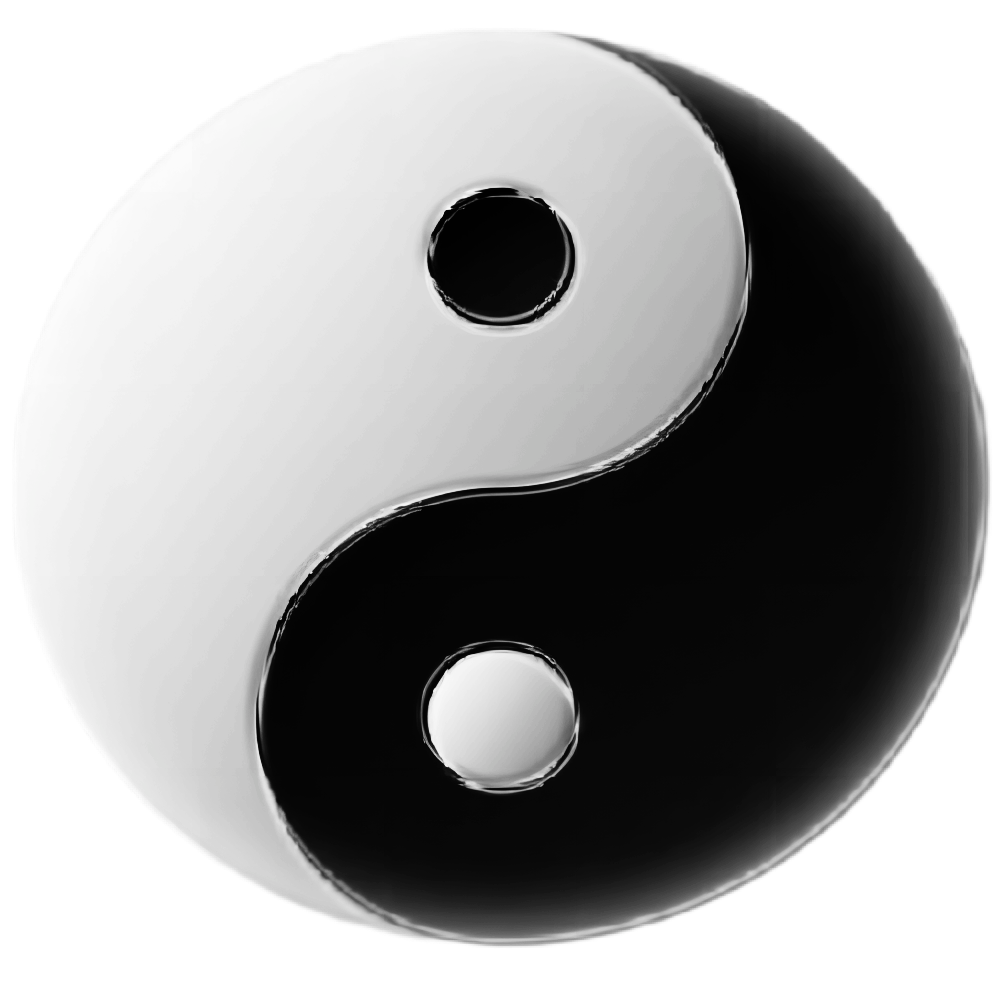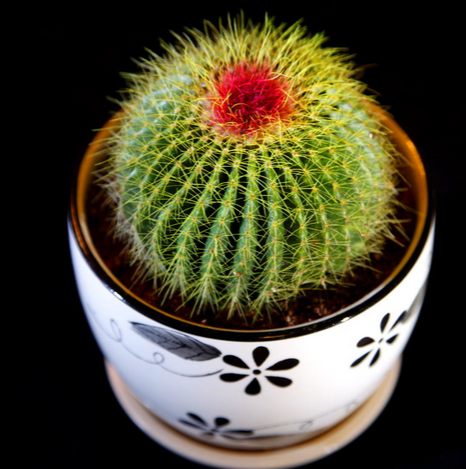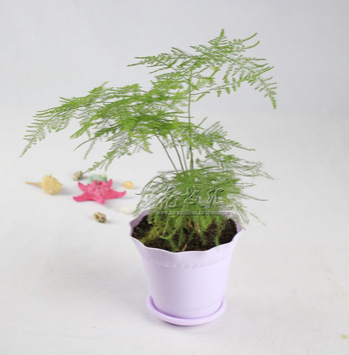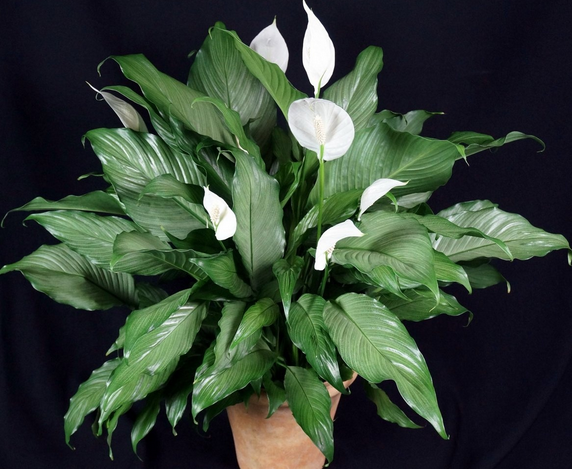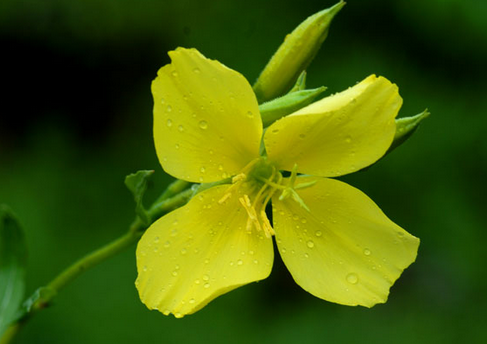Feng shui plants and flowers tips for bedroom
Many feng shui plants and flowers can bring good fortune for us. We had discussed feng shui plants and flowers tips for living room. So today, we will talk about feng shui plants and flowers in bedroom. The bedroom is different from living room. So there are some feng shui plants are not suitable for bedroom.
1. Many people places cactus or aloe in bedroom to absorb electrical radiation from electrical device. But per feng shui rules, sharp thorn is full of negative energy. Those kinds feng shui plants and flowers be used to absorb negative feng shui energy Chi. If your window face some negative view, you can try to place one cactus on the window to cure the negative feng shui. But if there is no any negative feng shui in your bedroom or living room, placing any plants and flowers with sharp thorn will bring negative feng shui energy Chi in your home.
2. Do not place flowering plant is your bedroom. First, some of people are allergic to pollen, so if place flowering plant in your bedroom, it will be very dangerous. Second, some flowers smell will cause sleepless. If you really like those flowers, you can place them in balcony or move them out of bedroom during flowering.
3. Asparagus fern, bracket plant are good feng shui plants for bedroom. That kind of plant not only can help your filter the air, but also easily grow. Even there are some other green plants can be placed in bedroom, pls remember do not place large plants in your bedroom; it may destroy the yin-yang balance. Regardless feng shui, those large plants will emit CO2 in night time, in long term it may cause health issue.
4. Spathiphyllum is also good choice for bedroom feng shui plants. It can help to filter toxic gas, but pls remember move them to balcony and out of bedroom during flowering.
5. Do not place blow plants and flowers in your bedroom: hydrangea, China rose, cordate telosma, orchid, oleander, pine and cypress, Chinese redbud, Mimosa pudica, greenish lily flower, tulip. Those plants and flowers can cause some illness after skin touch, intake or suction in long term.
Hope those feng shui plants and flowers tips for bedroom can help you to get positive feng shui. Good luck!
click here to see feng shui plants for study and home office room
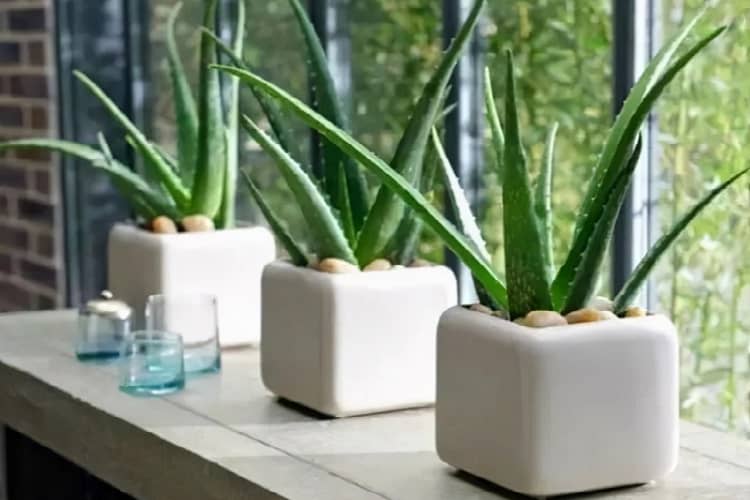
Plant and flowers Recommendations for FengShui
- Peace Lily: It is believed to provide tranquility and calmness in the bedroom. It also purifies the air by removing toxins and has a calming effect on the mind.
- Lucky Bamboo: It is said to bring good fortune, luck, and prosperity. The plant symbolizes growth and resilience, making it a popular choice for feng shui practices.
- Orchids: They are considered to provide love, beauty, and serenity. Orchids are also known for their air-purifying properties.
- Aloe Vera: It is believed to counter venomous energy and absorb electromagnetic waves from electronic devices like mobile phones. Aloe Vera also purifies the air by absorbing toxins.
- Jasmine: Its sweet fragrance helps in relieving stress and anxiety, promotes restful sleep and enhances love and sensuality.
- English Ivy: It is known for its air purification properties as it absorbs formaldehyde, benzene, and other pollutants.
- Lavender: It has a calming fragrance that promotes relaxation and helps with sleep. Lavender is also said to reduce anxiety and depression.
- Money Plant: As the name suggests, it is believed to bring prosperity and good fortune. It also improves the air quality and creates a soothing atmosphere.
- Snake Plant: It is known for its air-purifying qualities and visual appeal. The plant releases oxygen at night, making it ideal for the bedroom.
- Rose: Its fragrance symbolizes love, passion, and romance, making it a popular feng shui plant for the bedroom. The plant also reduces stress and promotes relaxation.
FAQ: About Feng shui plants and flowers
- Q: What are the best Feng shui plants for the bedroom?
A: The best Feng shui plants for the bedroom include Peace Lily, Lucky Bamboo, Orchids, Aloe Vera, Jasmine, English Ivy, Lavender, Money Plant, Snake Plant, and Rose. - Q: Can Feng shui plants help with sleep?
A: Yes, certain Feng shui plants like Lavender, Jasmine, and Snake Plant are known to promote relaxation and improve sleep quality. - Q: Where should I place Feng shui plants in my home?
A: The placement of Feng shui plants depends on the area of the Bagua map associated with the type of energy you want to enhance. For example, placing a Money Plant in the wealth area of your home can help attract financial abundance. - Q: Can Feng shui plants purify the air?
A: Yes, many Feng shui plants like Peace Lily, English Ivy, and Snake Plant are known for their air-purifying properties. - Q: Can Feng shui plants help with anxiety and stress?
A: Yes, certain Feng shui plants like Lavender and Rose are known for their calming properties and can help with anxiety and stress. - Q: How many plants should I have in my home for good Feng shui?
A: The number of plants you should have in your home depends on the size of your home and personal preference. The goal is to create a balance between nature and the indoor environment. - Q: Can fake plants be used for Feng shui?
A: Yes, fake plants can be used for Feng shui, but it’s recommended to use natural plants as they promote a healthier, more harmonious environment. - Q: Can Feng shui plants be placed in the bathroom?
A: Yes, Feng shui plants can be placed in the bathroom, but it’s important to choose plants that thrive in a humid environment. - Q: What are the benefits of Feng shui plants?
A: The benefits of Feng shui plants include improving air quality, promoting relaxation and sleep, reducing stress and anxiety, enhancing wealth and prosperity, and creating a more harmonious environment. - Q: Do I need to maintain my Feng shui plants regularly?
A: Yes, it’s important to maintain your Feng shui plants regularly by watering them, pruning them, and removing any dead leaves. Neglected plants can create stagnant energy and interfere with the flow of positive energy in your home.
